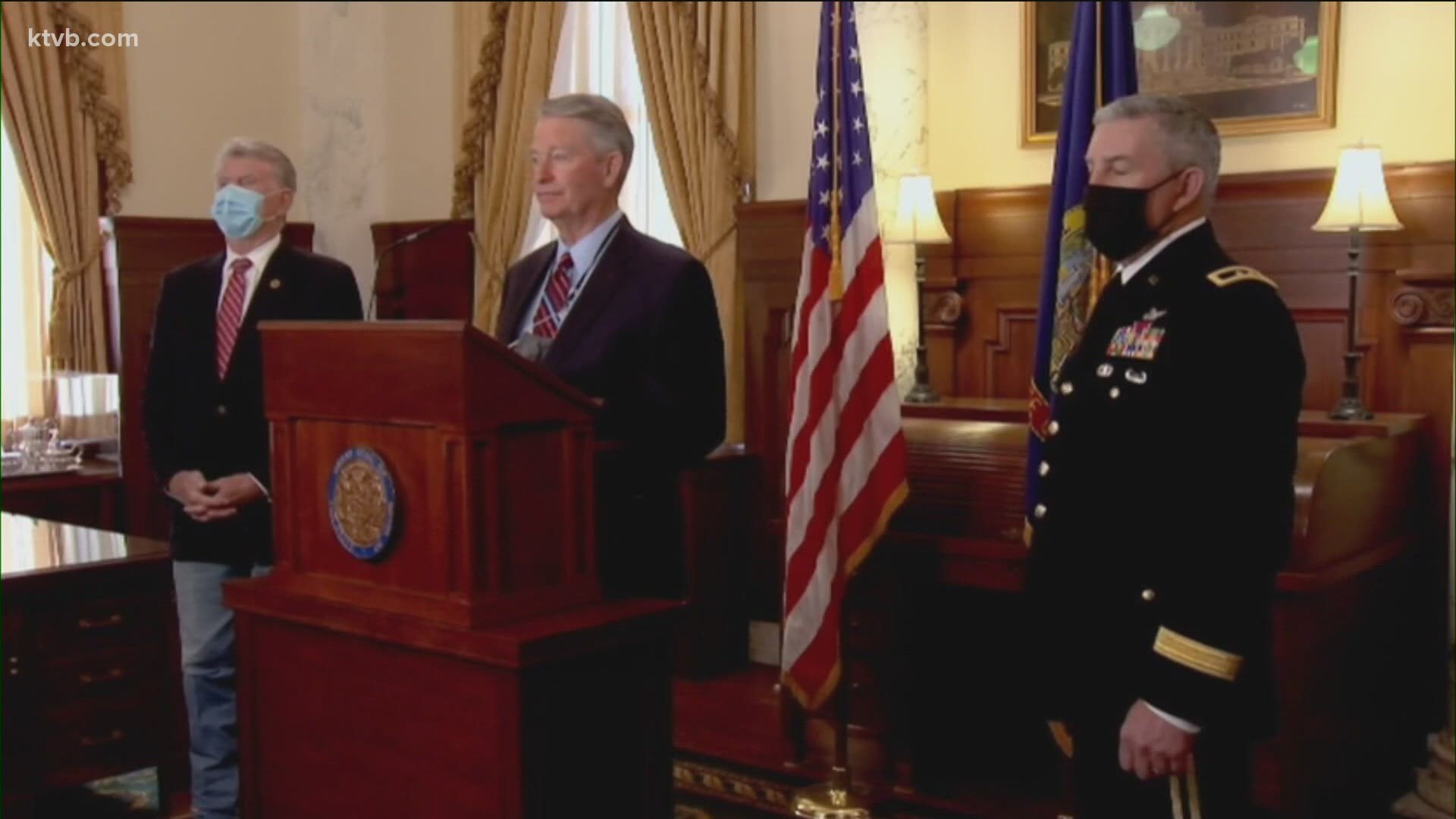BOISE, Idaho — As Gov. Brad Little left Idaho this week for a Republican Governor's Association conference in Nashville, Lt. Gov. Janice McGeachin, serving as acting governor, wasted no time issuing an executive order that would prevent certain government entities in the state from mandating face coverings.
"It's just difficult for me to go around the state and talk to people that are still being forced to wear these masks and do different things," McGeachin told 670 KBOI on Thursday.
Under article four, section 12 of the Idaho Constitution; in the case of the governor's absence from the state, the lieutenant governor automatically becomes acting governor. Which means they have all of the powers for that office.
Shaakirrah Sanders, a professor of law at the University of Idaho College of Law, said it's clear that McGeachin has the authority to issue an executive order. However, she thinks the order is very confusing for the entities it impacts.
Local governments, health districts, public schools, among others, all have legal obligations to protect people in their jurisdiction. The executive order raises a lot of questions and possible legal challenges.
"The obvious option is to go to court," said Sanders, adding that if the governor decides to rescind the order then the lawsuit may not be followed.
School districts across the state, like West Ada and Boise, are consulting legal counsel regarding their school boards' authority to enforce certain health and safety protocols.
Many have issued statements that wrote, "We are consulting legal counsel regarding our School Boards’ statutory authority under Idaho Code 33-512 to enforce certain health and safety protocols."
"It could be that [places] say, 'Hey we're going to do what we think is best. If the lieutenant governor wants to enforce it, then enforce it and we'll see you in court,'" Sanders said.
Sanders mentioned that there is a lot that remains unclear, which is why it leaves different interpretations up to each entity.
The City of Boise, which no longer has a mask mandate in place, does require people to wear face coverings in city facilities. City officials said under their interpretation, they will continue requiring people to do so.
"If an individual goes to a government facility or any of the places that are subject to this executive order and they say they don't want to wear a mask, it is not quite clear if those individuals will be able to say, 'Hey, here's this executive order saying I don't have to wear a mask and you can't impose that on me," Sanders said.
Whether an individual decides to sue an entity remains to be seen.
Sanders said for entities to decide whether or not to enforce the executive order really just comes down to whether or not they want to go to court.
"I think it increases the need upon the governor's return to clarify this executive order or rescind it," Sanders said.
Gov. Little's office said this order came as a surprise. He is supposed to return to Idaho Thursday night and it's unclear if he'll make any changes.

